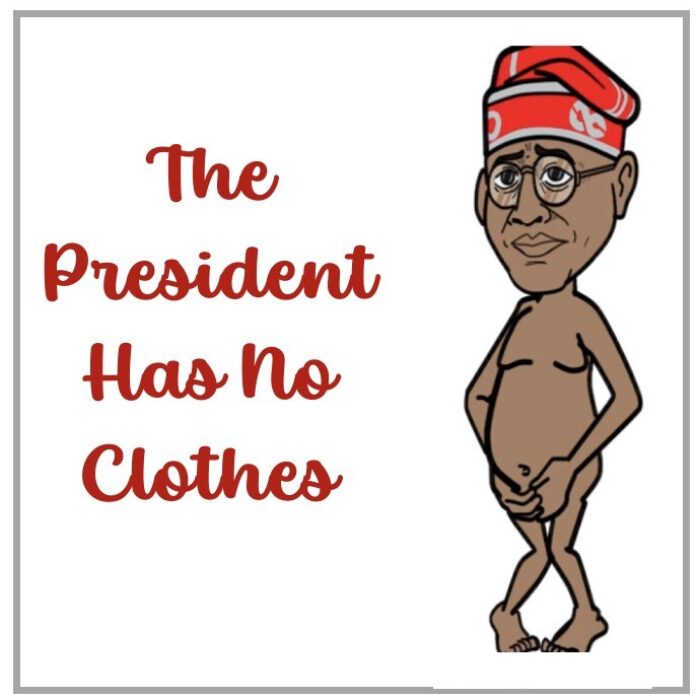By Nnaoke Ufere, Ph.D
Recently, a wave has been sweeping across Nigeria’s major commercial hubs — from Lagos to Aba, Kaduna to Abuja. Chinese manufacturers, squeezed out of the U.S. market by heavy tariffs, are now redirecting their surplus goods to new frontiers. Nigeria, with its large population and relatively open markets, has quickly emerged as a prime target.
Seizing the opportunity, many Chinese companies are aggressively partnering with local traders and manufacturers’ representatives, eager to flood the Nigerian market with goods they can no longer sell elsewhere. Their strategy is straightforward: move inventory as fast as possible, with little concern for long-term investment, local production, or the broader impact on Nigeria’s economy.
At first glance, especially in these difficult times, this sudden influx of cheap goods might seem like a blessing. Cheaper products filling the markets, a flurry of business activity, and the appearance of foreign engagement could easily be mistaken for signs of economic recovery, particularly by the Tinubu administration desperate for quick wins.
However, this view is dangerously shortsighted. Dumping is not relief; it is a slow economic poison that will deepen Nigeria’s dependence, hollow out local industries, and ultimately expose the administration’s failure to build a self-sustaining economy.
When you look past the surface, as we have done, a much more troubling reality comes into focus.
In conversations with several Chinese suppliers visiting Lagos and Abuja, we asked whether they had any intention of setting up manufacturing plants in Nigeria. Their response was blunt and revealing: No. Their priority is not to invest in Nigeria’s future, but simply to find a market to dump surplus products they cannot offload in other countries.
Chen Wu, a representative from a Shenzhen-based manufacturer, put it plainly: “We just want a market to sell goods we can’t sell elsewhere. Setting up factories here would be too costly and complicated.”
Another supplier, Li Zhang from Guangzhou, was even more direct: “We are here to move products, not to invest. Our warehouses are full; we need markets that can absorb fast and without much regulation.”
In short, their strategy is clear: dumping goods into Nigeria to relieve the supply chain glut created by shrinking opportunities in America and Europe.
The Real Cost to Nigeria’s Economy
This is no longer just about bilateral trade with China; it is about the survival of Nigeria’s own industries. Local producers, from shoemakers in Aba, to ceramic tile manufacturers in Kaduna, food processors in Lagos and textile companies in Kano, are now under brutal pressure. Many simply cannot compete with the relentless flood of cheap imports pouring into the country week after week, steadily undermining their businesses and threatening their very existence.
Making matters worse, experts, including estimates from Allianz, project that China’s exports to Nigeria could grow by about 6 to 10 percent annually over the next three years. If current trends continue unchecked, the pressure on local industries will only intensify.
Without protection, Nigeria’s already fragile manufacturing sector could be wiped out entirely. As we have seen from the thousands of businesses that have shut down, once a factory closes, it almost never reopens. Skills are lost. Jobs disappear. Entire communities collapse. In a country where finding work is already a daily struggle, the consequences would be devastating.
At this rate, Nigeria risks becoming nothing more than a trading post, a vast open-air market for the world’s surplus goods, but barren of real production, innovation, and industrial growth. Instead of building an economy that creates opportunities, we will be reduced to consuming what others no longer need.
The Strategic Risks
Let me be clear: the danger we face goes beyond just economic losses. When we produce very little and depend heavily on imports, we leave ourselves wide open to currency instability, foreign political pressure, and economic manipulation.
This is why true independence must be rooted in building an economy that can stand firmly on its own. Independence is not just political; it happens when we can feed ourselves, manufacture the goods we consume, create jobs for our people, and generate inclusive prosperity across the nation. No serious country entrusts its future to outsiders.
History shows us this clearly. Countries like China, the United States, and even smaller nations have always protected and invested in their industries because they understand that real sovereignty and lasting power come from economic self-reliance.
If we fail to learn from this and continue on our current path, importing everything and producing almost nothing, we risk becoming independent in name only. The time to act is now. We must secure our economic future, or we will continue to surrender our destiny to decisions made far beyond our borders.
What the Tinubu Administration Must Do Immediately
The time for hand-wringing is over. Tinubu must act decisively:
1. Impose Protective Tariffs: Targeted duties must be placed on imports that threaten sectors Nigeria can build locally, such as, textiles, ceramics, electronics, food products, furniture, and more. Other countries across Asia, Latin America, and Europe have already filed trade complaints against Chinese exporters for flooding their markets with cut-rate products. Nigeria must follow suit and take decisive action to protect its domestic manufacturers from the same threat.
2. Enforce Strict Quality Controls: Many dumped goods are inferior and dangerous. Regulatory agencies must raise inspection standards, not lower them.
3. Revive Local Manufacturing: Direct investments, tax incentives, cheap energy solutions, and easier credit access must be rolled out for Nigerian manufacturers.
4. Mandate Technology Transfers: Foreign firms that wish to operate here must contribute to local capacity-building, training, equipment, and knowledge-sharing, not just sales.
5. Invest in Infrastructure and Logistics: Without reliable power, water, roads, and ports, Nigerian products will never compete globally.
6. Strengthen African Trade Partnerships: Nigeria must use the African Continental Free Trade Area (AfCFTA) to build new markets for Nigerian-made goods across the continent.
The Choice Is Clear
Other nations, China included, have historically protected their industries ruthlessly. They did not grow by importing their way into prosperity. They built, they protected, and they invested.
We now face the same choice. We can either defend our industrial future by protecting and investing in local production, or we can sit back and watch the nation be buried under a mountain of foreign surplus goods, losing jobs, skills, and economic sovereignty in the process.
Mr. President, the time to act is now. We must choose to build, protect, and grow our economy or risk surrendering our future to others.




